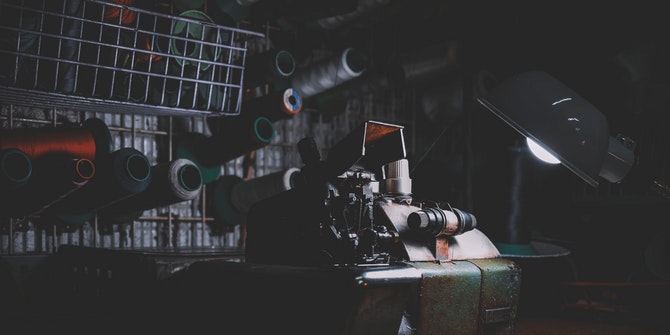As Bangladesh goes to the polls on 7 January, the first national elections since the Covid-19 pandemic, David Lewis looks at the context in which these elections are being conducted, and the challenges ahead for the ruling Awami League party.
Bangladesh will go to the polls for a general election this week (7 January), and a great deal is at stake. The Awami League (AL) government is hoping to be returned to power for a fourth consecutive term. At the last election in 2018, the AL won a suspiciously high 96 per cent of the vote in an election that was widely condemned as rigged.
The government got away with it because it has for many years been managing the economy successfully and developing the country’s infrastructure. In 2015, the World Bank’s ranking of Bangladesh was raised to ‘Lower-Middle Income’ country status. There was little in the way of popular protest following the election results.
Bangladesh has experienced a long period of high growth and relative stability. However, this is now threatened by a post-Covid-19 increase in urban inequality, a cost of living crisis and a wave of strikes among textile workers whose low wage labour — alongside remittances — underpins the government’s export-oriented ready-made garments strategy on which the country’s economy depends. In addition, the continuing presence of almost a million impoverished Rohingya refugees since 2007, living in crowded camps in an already highly densely populated country is another potential source of tension as the country’s initially warm welcome begins to wear thin.
*
The opposition Bangladesh Nationalist Party (BNP) has refused to participate in the elections, demanding the government restore the system of holding elections overseen by a three month, non-partisan government, known as the ‘Caretaker Government’ system. This framework was established in the early 1990s when electoral democracy was restored in the country after the fall of the last military government of General Ershad (1983–90).
The AL government’s argument is that Bangladesh is now a mature democracy that does not need ‘Caretaker Government’ arrangements, preferring to hold elections under the authority of what it claims to be an independent Election Commission. To justify this, it points to earlier abuse of the Caretaker system by the BNP in 2006 that led to widespread violence and an 18-month intervention by the army — thus jeopardising the already fragile system of democracy.
It would in any case be difficult for the BNP to take part in the election. Most of their leadership is in gaol (or exile) and few believe them to be a viable political opposition. They have presented very little by way of an agenda of policy alternatives to the status quo. An earlier threat by the US Ambassador to impose visa restrictions on those it believes to be undermining the election process has exacerbated political tensions, given justified local perceptions of the long history of external meddling in the country’s affairs.
*
While the AL government has overseen a successful economy, its record on human rights is increasingly dismal. A new Cyber Security Act (2023) is being used to silence online critics, while journalists and human rights activists have been harassed and jailed. Political opposition protests have been banned and tear gas and rubber bullets used to break up public marches and street protests. The civil society group Civicus recently downgraded Bangladesh to its lowest category of ‘closed’, placing it among the world’s 28 most restricted countries.
The government’s strategy will be to ‘engineer’ its election victory, so that it can plausibly claim that there is an opposition. Along with a number of small political parties, candidates from among AL factions will stand in some seats as ‘independents’ to ensure that some opposition MPs are returned, and it will try to ensure it can claim a voter turnout of at least 40 per cent. However, the issue of political factions is likely to become problematic in the future, since the party’s leader — Prime Minister Sheikh Hasina Wazed — has no obvious successor, and her leadership style is highly personalised.
A second problem is the ongoing labour dispute with the garment workers, whose monthly wages of around US$75 are among the world’s lowest in the industry. Despite a recent government offer to increase salaries by more than 50 per cent, workers and their unions have demanded wage rises beyond what has been offered by the government, and have become increasingly militant.
Alongside these issues are the longer term challenges of the need to address vulnerability to climate change, and the refugee crisis.
*
The election seems likely to go ahead, and the AL seems assured of victory. The short term future of the government is secure, but in the medium to long term the future seems far less certain.
*
The views expressed here are those of the author and do not represent the views of the ‘South Asia @ LSE’ blog, the LSE South Asia Centre or the London School of Economics and Political Science. Please click here for our Comments Policy.
This blogpost may not be reposted by anyone without prior written consent of LSE South Asia Centre; please e-mail southasia@lse.ac.uk for permission.
Banner image © Salman Preeom, ‘Aerial View of Hatir Jheel Lake Bridge’, Dhaka, Bangladesh, 2021, Unsplash.
*








The writing on the Bangladesh Election taking place today on 7 January 2024 by my old friend Professor of LSE Dr David Lewis is quiet factual without any bias. I do very much appreciate it as his most of the writings done with love and sympathy for Bangladesh and it’s general public. Here I have a little bit to add that is my own opinion and will be happy to be published for all readers.
People of Bangladesh has been drawn themselves from free and fair enough election just after 2011, the Caretaker Government System (CGS) has been abolished denying the agreement (established in December 1990) by all opposition parties to practice the CGS for more two terms after 1990.
On the other hand, the Leadership of the major opposition party BNP doesn’t rely any of the leaders who are engaged in struggling with the ruling party in the field. They aren’t committed and it’s very clear to all in the country. Bangladesh is also situated in a very geopolitical area and became a field for an “international fighting” of major super powers.
After Covid19 we’re passing through a very critical way to reconstruct our economy. I’m sorry to say, none of the western countries of so called “DEMOCRACY” (who have double standard opinion on Palestinian Vs Israel and Ukrainan Vs Russian) are coming with soft loan packages to overcome the situation where as we have shown a very brave gesture for the people of Rohinga.
Nevertheless, I’m wholeheartedly confidence with our great people of Bangladesh who achieved their political liberation by a ten-month war in 1971, will gain the economic emancipation in very near future.
Mokshedul HAMID
PhD (Pedagogy)